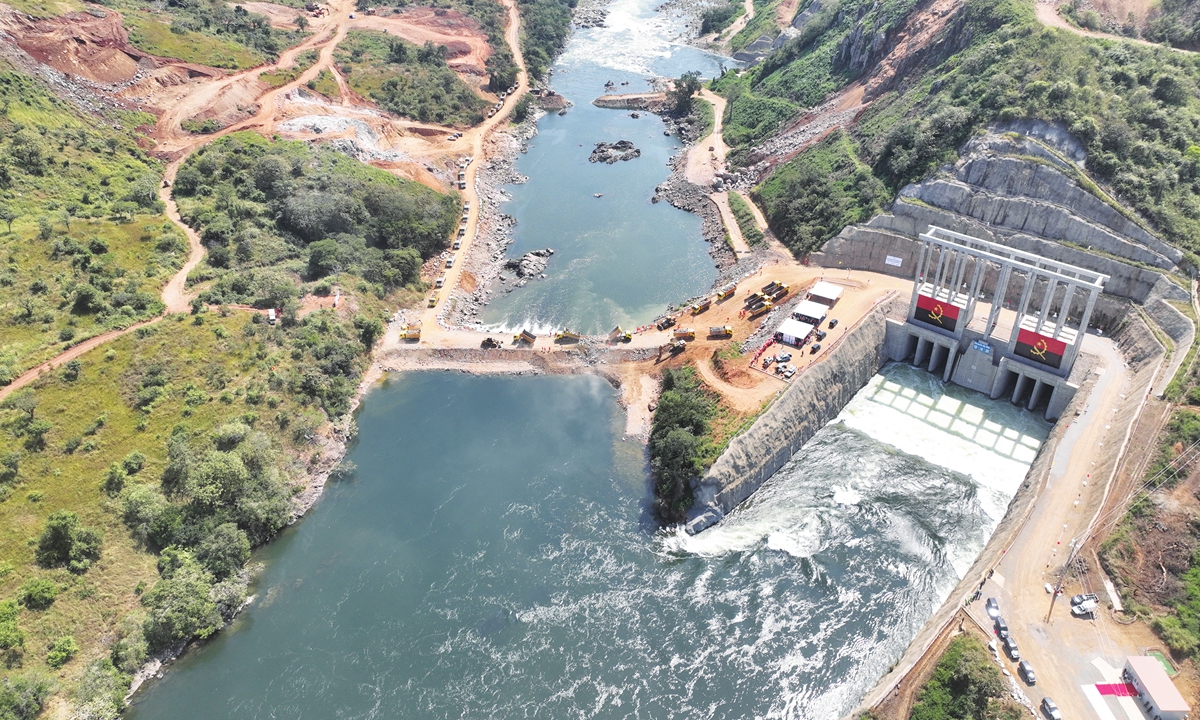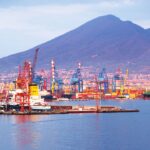By Tu Lei in Changsha
Africa, a promising continent with abundant resources like solar and wind energies is well on its way to developing a world-class new-energy industry, and now, many African countries are opening arms to welcome Chinese investment to the emerging sector.
African officials and delegates who participated in the Third China-Africa Economic and Trade Expo in Changsha, Hunan Province, hope that more Chinese companies could take part in new-energy development in the continent and help African countries ease electricity supply crunch.
“China now owns advantages in new-energy development, and we hope this event will see a fruitful partnership [formed] between China and African countries, and before long [we] will have solar power plants, wind farms, hydropower projects, and other renewable energy projects in the Africa,” said Solomon Tesfaye Telila, Minister of the Embassy of Ethiopia during a forum in Changsha on Friday.
The forum, which is part of the Third China-Africa Economic and Trade Expo, held from June 29 to July 2, yielded fruitful results after the largest participation by African nations and Chinese enterprises, and the highest number of contracts and agreements signed at such an event.
Yusuf Timol, Minister Counsellor of the Embassy of South Africa, stressed the importance of new-energy development and cooperation with China.
Green industrial development and new-energy transformation have increasingly become a global consensus, as the world seems to join hands to fight climate change. Meanwhile, 80 percent of South Africa’s electricity is still coal-generated, and power shortages in the country are impacting South Africa’s economic development, Timol said.
Energy shortage
Timol added that South Africa needs 600 billion yuan ($83 billion) to reduce carbon emissions, which will create many opportunities for Chinese energy companies in areas such as solar power, while power transmission and electricity distribution infrastructure also needs to be developed.
“We hope that more Chinese enterprises will participate in the development of South Africa’s new-energy industry, which will help relieve our power shortage,” Timol noted.
South Africa is not alone. The door of cooperation is “open to China”, said Francois Hough van Schalkwyk, Executive Director of the Namibia Investment Promotion & Development Board.
Namibia is not only rich in wind and solar energy, but also has a very good business environment and its road and railway networks are constantly expanding, Schalkwyk said. Now, Namibia is focusing on the development of hydrogen energy and hopes to promote green hydrogen development together with international partners.
According to a report by the International Energy Agency released in June 2023, by 2030, there will be 660 million people without electricity in the world, with the majority living in sub-Saharan Africa.
Rich resources
“Africa is a land rich in hydro, solar, and wind resources,” said Zhou Yuanbing from the Global Energy Interconnection Development and Cooperation Organization.
The scale of solar energy resources suitable for development in Africa is about 1,375 billion kilowatts, accounting for 50 percent of the global total. The scale of wind energy resources to be harnessed exceeds 56 billion kilowatts, accounting for nearly 40 percent of the global total, Zhou said.
Africa has a great potential to be developed. However, at present, energy supply in Africa is insufficient, Zhou said.
In 2021, Africa’s accumulative power consumption accounted for less than 3 percent of the world’s total consumption, and energy development on the continent primarily relies on fossil fuel, which is also classified as “dirty energy.”
“The development of new energy is an inevitable choice for Africa to achieve sustainable development,” said Jiang Yun, secretary general of China Overseas Development Association.
Africa is rich in solar, wind, geothermal and tidal energy, and the investment of Chinese companies in clean energy in the continent has ranked first globally, setting the basis for further development, Jiang said.
China-Africa economic and trade cooperation has already achieved fruitful results over the last decade. Official data showed China’s direct investment in Africa is in excess of $30 billion.
Close cooperation
To many African countries, Chinese companies are advanced in owning engineering and technological advantages. For instance, Chinese enterprises are leading in wind turbines and solar panels manufacturing, in addition to construction machinery and equipment-making.
To date, China has teamed up with many African countries to build a good number of new-energy projects. The Garissa photovoltaic power generation project in Kenya is currently the largest photovoltaic power station in East Africa, with an average annual power generation output of 76 million kilowatt-hours.
In June 2022, the first photovoltaic power station in the Central African Republic, the Sakai Photovoltaic Power Station, was connected to the country’s power grid, which has greatly alleviated power supply crunch in the capital Bangui and promoted local economic and social development.
In Ethiopia, the Aysha Wind Farm Project undertaken by the China Dongfang Electric Corporation has completed, with a total installed capacity of 120 megawatts.
Chinese companies have unique advantages compared with their Western counterparts. For example, Chinese firms are technologically advanced and cost effective in infrastructure projects, Timol said.
“Moreover, Chinese companies often come with innovative financial support measures, and will not take up our country’s financial resources,” Timol said.
Zhang Xinyu, general manager of Hunan-based Xiangfeilianbo International Trade company, told the Global Times that the company has just signed a deal with the Niger government to develop a large-scale industrial park, called the Niger Industrial Park. The initial investment will reach $100 million, and the park will focus on new-energy development.
Jiang said that the transformation of Africa’s energy industry cannot be accomplished overnight, and the rollout of the entire industrial chain will take some time, but Chinese enterprises’ assistance will be of great help for the continent’s growth.













